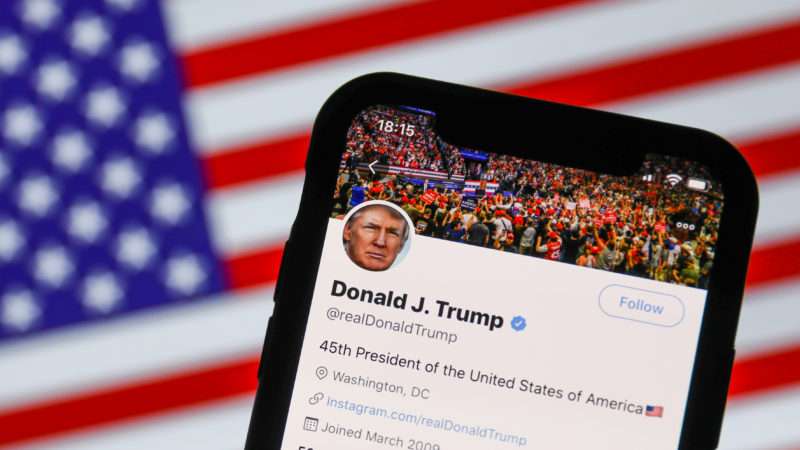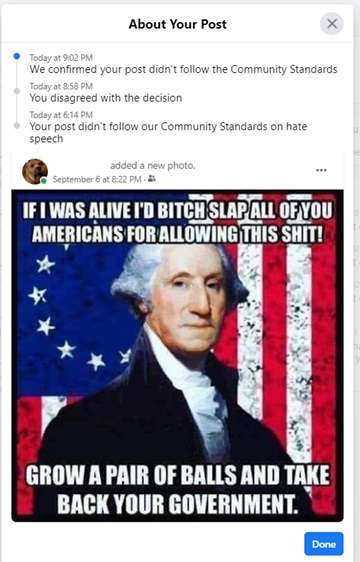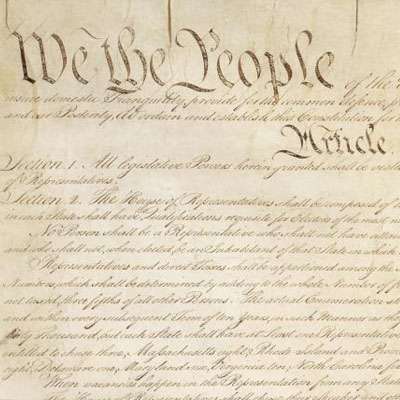Trump nominates Nathan Simington to Federal Communications Commission (FCC). When both presidential contenders—incumbent President Donald Trump and Democratic nominee Joe Biden—want to repeal Section 230 of federal communications law, it’s perhaps the best indicator that doing so is a bad idea. As First Amendment lawyer and law professor Eric Goldman put it earlier this summer: “Turns out that censorship is a bipartisan objective.”
The popularity among politicians for destroying this free speech-protective law proves yet again how appealing censorship is to both Republicans and Democrats. It seems like every week in 2020, we get a new and devastating reminder of this unfortunate fact. Today, it comes in the form of Trump’s new nominee for Federal Communications Commission commissioner: Nathan Simington.
The first sign that this is no good for social media and the internet is that Simington is a veteran telecom lawyer. But he’s not just any telecom lawyer. “Simington, a senior adviser at the National Telecommunications and Information Administration (NTIA), played a significant role in drafting a petition required under the Trump administration’s social media executive order issued over the summer,” reports The Verge. That NTIA petition was central to Trump’s gambit to get the FCC to reinterpret Section 230. (Read more about Trump’s overreaching and yet also relatively toothless order here.)
“Simington’s nomination marks a significant break in the Trump administration’s former FCC nominations,” notes The Verge‘s Makena Kelly. “Previously, the administration has nominated Republican commissioners in favor of light-touch telecommunications and technology policy.” And “if Simington’s nomination is approved in the Senate, the FCC would have two Republican commissioners likely in favor of voting to approve the administration’s social media order,” Kelly points out.
Simington would take the place of FCC Commissioner Mike O’Rielly, who describes himself as “extremely dedicated to First Amendment” and—unlike some of his colleagues—has declined to be a total Trump bootlicker. Trump had nominated O’Rielly for a third term as an FCC commissioner until O’Rielly gave a speech critical of Trump administration tech and speech policy in July. The White House promptly announced that it was pulling O’Rielly’s nomination.
“In other words, the White House is being a petty asshole, again, and firing anyone for not being in lockstep with the President’s ridiculous unconstitutional whims,” commented Mike Masnick at Techdirt.
Sen. Ron Wyden (D–Ore.), one of the co-authors of Section 230, told The Verge that Trump’s order is wrong about how Section 230 works (and so are politicians like Sens. Josh Hawley of Missouri and Ted Cruz of Texas). “What Chris Cox and I tried to do in Section 230, I think it’s still valid today, is we wanted to empower free speech and moderation. These other ideas have one thing in common. They would restrict free speech in order to force moderation,” said Wyden in August. Asked then to speculate on who Trump would nominate to replace O’Rielly, he said:
So my guess is that the president will insist on somebody who’s going to push the policy that Twitter should have to publish his lies and somehow twist and turn the FCC into a forum that unravels Section 230 and basically kind of forfeit any sense of independence. And I’ve got a track record of fighting that kind of nominee, and we’ll certainly have tough questions to ask in any kind of confirmation process.
I’ve got to think that a nominee to the Federal Communications Commission from the Trump administration is somebody who basically is prepared to carry out every dotted I and every crossed T of the president’s anti-230 policy. I think the bottom line is basically about working the refs, bullying the tech companies, and forcing Twitter and other platforms to print his lies.
FREE MINDS
America’s global prestige continues to drop. “Since Donald Trump took office as president, the image of the United States has suffered across many regions of the globe,” says the Pew Research Center, reporting on a new survey of people in 13 countries that explores how “America’s reputation has declined further over the past year among many key allies and partners.”
“In several countries, the share of the public with a favorable view of the U.S. is as low as it has been at any point since the Center began polling on this topic nearly two decades ago,” the nonprofit, nonpartisan polling organization notes:
For instance, just 41% in the United Kingdom express a favorable opinion of the U.S., the lowest percentage registered in any Pew Research Center survey there. In France, only 31% see the U.S. positively, matching the grim ratings from March 2003, at the height of U.S.-France tensions over the Iraq War. Germans give the U.S. particularly low marks on the survey: 26% rate the U.S. favorably, similar to the 25% in the same March 2003 poll.
Read more findings from Pew’s new survey here.
FREE MARKETS
Black people account for nearly 90 percent of marijuana arrests in Washington, D.C., where decriminalization of marijuana possession was supposed to help ease racial discrimination in policing and disparities in drug arrests. But “five years after the city enacted reforms that proponents hoped would end racial disparities in enforcement,” D.C. cops are still “far more likely to arrest Blacks than Whites for marijuana-related offenses,” according to The Washington Post:
Although marijuana arrests have declined by more than half, African Americans still account for just under 90 percent of those arrested on all pot-related charges, according to a Washington Post analysis, even as they make up 45 percent of the city’s population.
And while studies show that marijuana use is equally prevalent among Blacks and Whites, 84 percent of more than 900 people arrested for public consumption in the nation’s capital were African American in the four years after legalization.
More here.
ELECTION 2020
Biden has a significant lead in the latest polls from some key Midwestern states:
QUICK HITS
- Department of Homeland Security whistleblower Brian Murphy claims that (perhaps illegitimate) acting secretary of the department, Chad Wolf, told him “to cease providing intelligence assessments on the threat of Russian interference in the United States, and instead start reporting on interference activities by China and Iran.”
- A judge in Pennsylvania set bail for people arrested on riot charges at a recent protest at $1 million apiece.
- “Four years ago I was a ‘Never Trump’ voter,” writes longtime libertarian Walter Olson, a senior fellow at the Cato Institute, in the Wall Street Journal. “Now, I’m more set than ever in that view: No Trump, doubled. That’s even though I far prefer his economic policies to those of the Democrats.”
- “The recent case of a young teen with autism who was shot by the police in a Salt Lake City suburb, after his mother called the police while he was in crisis, raises some serious questions,” writes Mathieu Vaillancourt. “Considering that close to 1% of the population in the U.S. is on the autistic spectrum, perhaps it’s time for police in the United States and elsewhere in the world to start having better procedures in order to deal with crises that do not require using potentially lethal force.”

from Latest – Reason.com https://ift.tt/3mo7LiR
via IFTTT


